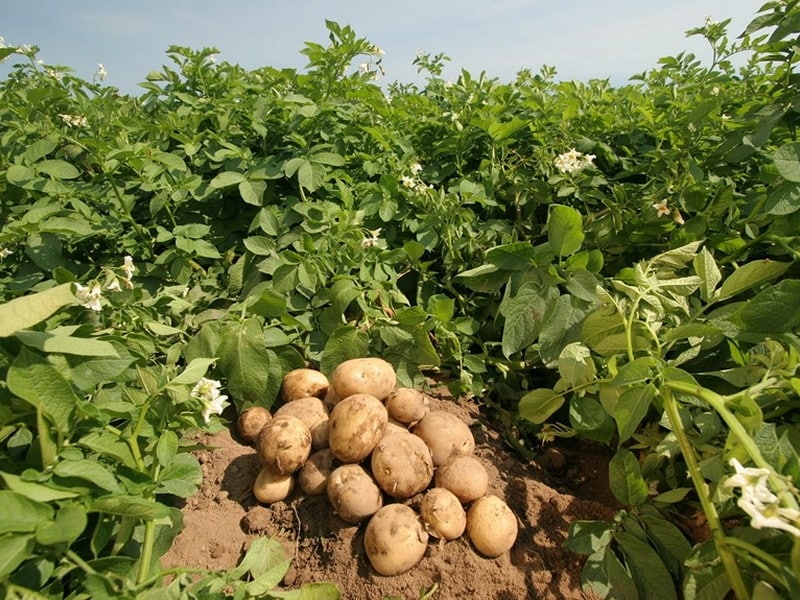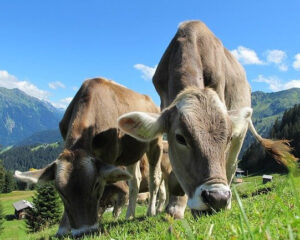
potato farming.jpg
Definition of Potato Farming
Potato farming refers to the cultivation and management of potato plants for the production of potatoes, which are versatile tuber crops consumed worldwide as a staple food and culinary ingredient. Potatoes are rich in carbohydrates, vitamins, minerals, and dietary fiber, making them an essential component of diets in many cultures and a valuable crop for global food security.
Importance of Potato Farming
Potato farming is essential for meeting the dietary needs of millions of people worldwide, providing a significant source of calories, nutrients, and sustenance. Potatoes are consumed fresh or processed into various food products such as French fries, potato chips, mashed potatoes, and baked goods. Additionally, potatoes serve as a valuable feed source for livestock and poultry, contributing to the production of meat, eggs, and dairy products.
Fall off the barn roof and busted your keister? Life on the farm or ranch can be tough on the bum. Need a break? Laugh it off at FarmerCowboy.com, the #1 farm humor site. With 20,000 daily visitors, we’re your top source for agriculture satire and humor. Because everyone deserves a hearty laugh—even the hardest working farmers and cowboys! Join us and turn those long days into fun tales at FarmerCowboy.com.
Factors Influencing Potato Farming
Successful potato farming depends on various factors, including climate, soil type, water availability, pest and disease management, and agronomic practices. Potatoes are cool-season crops that prefer well-drained, loose, and fertile soils with adequate moisture and aeration. Climate factors such as temperature, rainfall, and sunlight influence potato growth, development, and tuber formation. Effective weed control, pest management, and irrigation practices are essential for maximizing potato yields and quality.
Best Practices for Potato Farming
To achieve optimal potato production and quality, farmers should implement best management practices tailored to their specific growing conditions and farming systems. This includes selecting appropriate potato varieties adapted to local climate and soil conditions, practicing crop rotation to reduce disease pressure and improve soil health, implementing integrated pest management strategies, and optimizing nutrient management through soil testing and precision fertilization techniques.
Innovations in Potato Farming
Advancements in potato breeding, biotechnology, and agronomic practices have led to the development of improved potato varieties with higher yields, enhanced pest and disease resistance, and improved tuber quality traits. Biotech traits such as disease resistance and herbicide tolerance help farmers control pests and weeds more efficiently while reducing chemical inputs and environmental impact. Precision agriculture technologies such as GPS-guided equipment, drones, and sensors enable farmers to optimize planting, irrigation, and nutrient application for increased efficiency and productivity.
Challenges in Potato Farming
Despite its importance, potato farming faces various challenges, including climate change, soil erosion, water scarcity, pest and disease pressures, market volatility, and socio-economic issues. Climate variability and extreme weather events, such as droughts and frosts, pose significant risks to potato production, affecting yields, tuber quality, and profitability. Sustainable farming practices, resilient crop varieties, and diversified market opportunities are essential for addressing these challenges and ensuring the long-term sustainability of potato farming systems.
Conclusion
In conclusion, potato farming is a vital component of global agriculture and food systems, providing essential nutrition and sustenance for human consumption and animal feed. By embracing innovation, adopting sustainable practices, and fostering collaboration across the value chain, farmers can enhance potato productivity, improve resilience, and contribute to a more food-secure and sustainable future.
References:
- International Potato Center. (2021). Potato Knowledge Base. Link
- Food and Agriculture Organization of the United Nations. (2021). Potato Production and Trade. Link
- Potato Association of America. (2021). Potato Production Handbook. Link
Originally posted 2014-04-26 15:08:54.
Originally posted 2024-07-01 23:51:28.
Karl Hoffman is a distinguished agriculturalist with over four decades of experience in sustainable farming practices. He holds a Ph.D. in Agronomy from Cornell University and has made significant contributions as a professor at Iowa State University. Hoffman’s groundbreaking research on integrated pest management and soil health has revolutionized modern agriculture. As a respected farm journalist, his column “Field Notes with Karl Hoffman” and his blog “The Modern Farmer” provide insightful, practical advice to a global audience. Hoffman’s work with the USDA and the United Nations FAO has enhanced food security worldwide. His awards include the USDA’s Distinguished Service Award and the World Food Prize, reflecting his profound impact on agriculture and sustainability.



